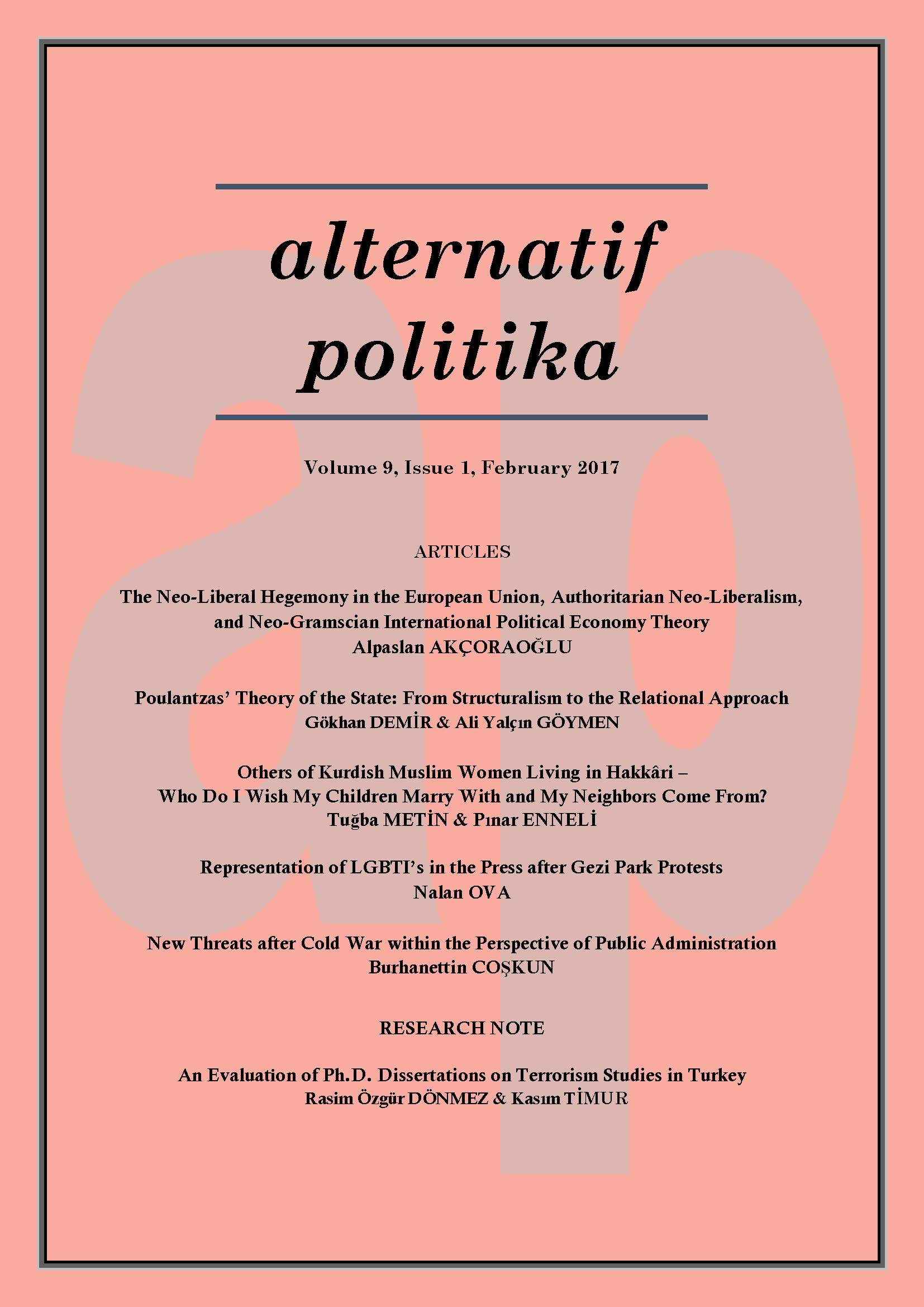Gezi Parkı Eylemleri Sonrasında Yazılı Basında LGBTİ’ler: Kırılma ve Süreklilikler
REPRESENTATION OF LGBTI’S IN THE PRESS AFTER GEZİ PARK PROTESTS
Author(s): Nalan OvaSubject(s): Politics / Political Sciences, Gender Studies, Communication studies, Politics and society, Sociology of Politics
Published by: Rasim Özgür DÖNMEZ
Keywords: Gezi Park Protests; LGBTI; Press; Representation; Publicity
Summary/Abstract: The Gezi Park protests started due to police violence against a group that protested against the “Urban Renewal Project”. The “URP” required the building a mall in the place of Gezi Park in Taksim Square. In a short while, the protests gathered a variety of groups from anarchists to Islamist, from nationalists to feminists as well as LGBTİ’s and it became a massive movement. LGBTI groups became one of the most prominent actors in the protests. Beside Romans and gamins, LGBTI’s are the most affected groups. Their active participation in the resistance period had an important role for their legitimacy struggle. Thus, it is claimed that the Gezi Struggle pointed a breakdown in their recognition of identity in their legitimacy struggle, which has lasted since the 1990’s. It is also important to analyse, whether the Gezi Park protests affected a change in the amount of recognition, the LGBTI community received in the news. This study aims to reveal whether or not, the protests provide recognition of LGBTI individuals’ identity as well as whether or not it provides their movement with greater legitimacy. This will be accomplished by analyzing the news from mass media in terms of how it represents gay and trans people. 321 news articles about LGBTI individuals which took place in pioneer representations, such as Hürriyet, Radikal, Milliyet and Zaman, Yeni Şafak newspapers, of mass media in Turkey dating between 31 May 2013 and 31 December 2013 using the keywords “LGBT”, “LGBTI”, “gay”, “lesbian”, “trans”, “transseksual”, “transvestite” were analysed on the basis of discourse.
Journal: Alternatif Politika
- Issue Year: 9/2017
- Issue No: 1
- Page Range: 85-108
- Page Count: 24
- Language: Turkish

